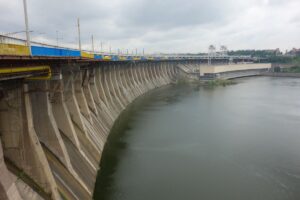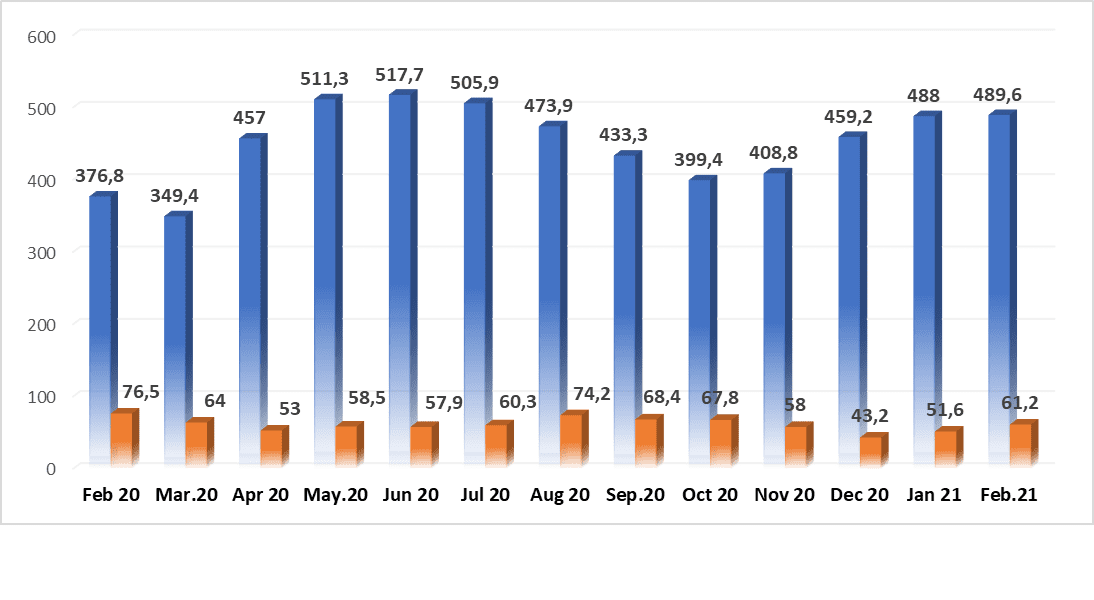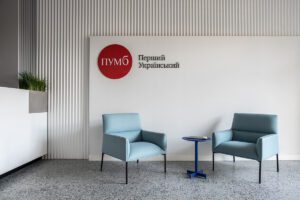
Farmak pharmaceutical company, within the framework of a strategic partnership with the Kyiv School of Economics (KSE), will allocate $ 500,000 for the development of KSE.
According to a press release from the pharmaceutical company, in particular, the funds will be used to equip a new campus, as well as to strengthen existing and launch new educational areas, including training bachelors.
“By supporting such projects, we are contributing to the achievement of the Global Sustainable Development Goals, one of the tasks of which is to improve the quality of higher education and ensure its close connection with science,” Executive Director of Farmak Volodymyr Kostiuk said.
The press release notes that Farmak supports not only KSE, but also other educational initiatives, including the Minor Academy of Sciences, publishes books about Ukrainian scientists. The company’s own scientific potential (150 scientists, 42 candidates of sciences, five doctors of sciences and an innovative R&D complex) allows providing a high level of academic expertise.
“The decision of Farmak company testifies that Ukrainian business is entering a new level of corporate social responsibility, and this should become an example for others. Thanks to the support of companies such as Farmak, we are preparing the ground for a strong and innovative Ukrainian economy,” President of KSE Tymofiy Mylovanov said.
Farmak is the leader of the Ukrainian pharmaceutical market, produces medicines in all 14 therapeutic groups. Annually it introduces to the market about 20 new complex component modern drugs. Currently, there are about 100 drugs in development. It exports products to more than 25 countries around the world.

PrJSC Ukrhydroenergo in the first quarter of 2021 compared to the same period of 2020 increased its net profit by 3.5 times (by UAH 1.626 billion), to UAH 2.278 billion, according to its financial statements on the website.
According to the company’s reporting, the net income of Ukrhydroenergo for January-March of this year increased by 1.65 times (by UAH 1.810 billion), to UAH 4.602 billion, gross profit – twofold (by UAH 1.797 billion), to UAH 3.468 billion.
At the same time, the cost of goods sold is UAH 1.133 billion, which is almost UAH 13 million higher than last year’s figure (UAH 1.120 billion).
The press service of the company noted that following the results of work in the first quarter, the company fully paid its obligations to the budgets of all levels, the volume of payments amounted to UAH 794.3 million.
As reported, Ukrhydroenergo in 2020 increased its net profit by 28.4% compared to 2019, to UAH 4.137 billion.
NUMBER OF UNEMPLOYED IN UKRAINE AND JOB OPPORTUNITIES, FEB 20 – FEB 21


DTEK Grids LLC on April 30, 2021 entered into an agreement for the sale and purchase of 24.5% of shares in PJSC Kirovohradoblenergo, which belongs to VS Group Management LLC from the VS Energy Group and related companies, and is considering the possibility of acquiring a controlling stake of shares of this enterprise upon approval of the relevant transaction by the Antimonopoly Committee of Ukraine.
“DTEK continues developing its electricity distribution business. The company views it as promising and important for the transformation of the Ukrainian power market,” the company said in a statement on Friday.
Currently, the VS Energy group also includes Khersonoblenergo, Zhytomyroblenergo, Rivneoblenergo and Chernivtsioblenergo. In 2019 VS Energy sold Kyivoblenergo and Odesaoblenergo to the DTEK group.
In January, VS Energy announced a compulsory squeeze-out of Kirovohradoblenergo shares from minority shareholders, following the similar actions at Khersonoblenergo and Chernivtsioblenergo. According to the document, the highest price at which the applicant or persons affiliated with him acquired the issuer’s shares over the past 12 months was UAH 1.30. The market price of the Kirovohradoblenergo shares as of December 22, 2020, set by the appraiser of FC TITAN LLC, was UAH 1.26.
The total number of Kirovohradoblenergo shares is 119.376 million.
DTEK Grids said that it plans to implement a comprehensive program for the modernization of existing assets, as well as to carry out system automation and digitalization of power grid management in Kirovohradoblenergo, DTEK Grids CEO Ivan Geliukh said. According to him, this will improve the reliability of power supply, reduce losses and improve the quality of customer service in Kropyvnytsky and Kirovohrad regions.
According to the company, today, the market for supplying electricity to customers is completely competitive, the national regulator NEURC controls the work of distribution system operators, imposing an obligation on them to unconditionally provide access to the network infrastructure to any electricity supplier. “Thus, the concentration of new assets by DTEK complies with the legislation and the right of customers to have an opportunity of choosing who they buy electricity from in the market,” DTEK Grids said.
The company is developing a business for the distribution of electricity and the operation of power grids in Kyiv city and region, Dnipropetrovsk, Donetsk and Odesa regions. Its enterprises service 5.4 million households and 150,000 enterprises.

The net profit of First Ukrainian International Bank (FUIB, Kyiv) in January-March 2021 amounted to UAH 1 billion, which is 23.3% more than in the same period in 2020 (UAH 810.9 million), the bank said on its website.
According to the report, the bank’s net interest income in the first quarter increased by 20.7% compared to the same period a year earlier, to UAH 2.03 billion, and commission fees – by 5%, to UAH 439 million.
FUIB’s assets in the first three months of the year increased by 12.8%, to UAH 84.877 billion, in particular loans to customers – by 5.5%, to UAH 39.6 billion, and cash and cash equivalents – by 1.5 times, to UAH 21.26 billion.
The bank’s liabilities increased by 15%, to UAH 75.456 billion, in particular, customer funds – by 17%, to UAH 67.3 billion, and debt to other banks – by 35.7%, to UAH 1.84 billion.
The bank’s net worth decreased by 2.7% in three months, to UAH 9.42 billion. The charter capital remained at the level of UAH 4.78 billion.
FUIB was founded in 1991. Rinat Akhmetov is the owner of a significant stake in the bank (indirect participation is 99.9%).
According to the National Bank of Ukraine, as of March 1, 2021, in terms of total assets (UAH 85.516 billion) FUIB ranked seventh among 73 banks operating in the country.

The Cabinet of Ministers has approved the distribution of UAH 24.3 billion of net profit of the state PrivatBank (Kyiv) for 2020, in particular, UAH 19.4 billion (80%) will be allocated to pay dividends to the state budget, and UAH 3.645 billion to cover the accumulated losses of previous years (15%), and to the reserve fund – UAH 1.215 billion (5%).
The corresponding order was approved by the government on April 28.
As reported, at the end of April 2020, the Cabinet of Ministers approved the standard for the deduction of part of the profit to the state budget for state-owned companies at the level of 50%, with the clarification that it can also be set individually.